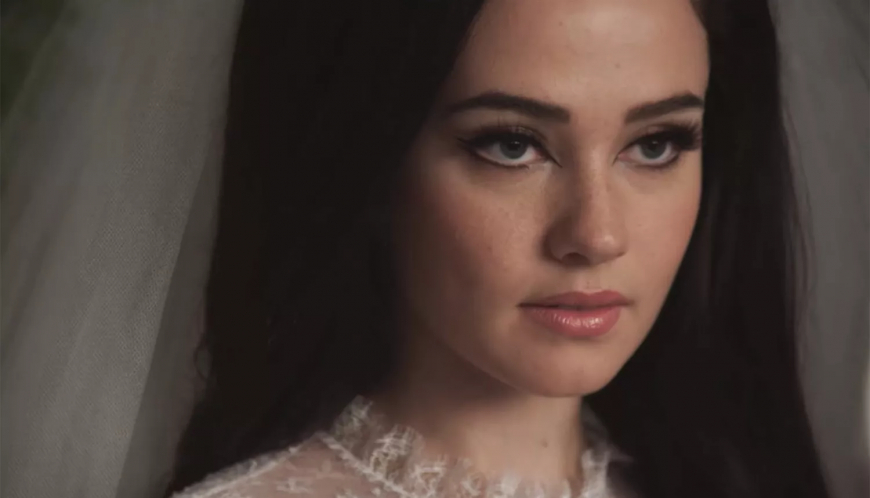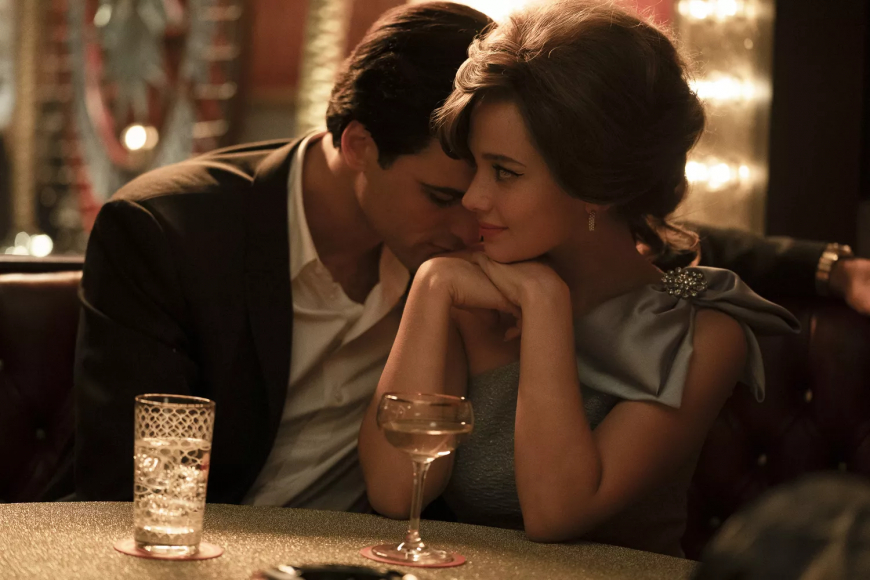Nominated for Nothing: Why Priscilla didn't get a hunk of burning love from the Academy

They were destined to score zero Academy Awards, but they won our attention throughout a year (and awards season) like no other. Ahead of the 96th Oscars ceremony on March 10, Entertainment Weekly is breaking down the year's best movies, performances, and directorial achievements that were nominated for nothing.
The film: Based on the 1985 memoir Elvis and Me by Priscilla Presley, Priscilla reflects on a piece of the story fans of Elvis Presley have either glossed over or ignored: what Priscilla’s life was like in the shadow and under the fame-altered lens of the man who held the hearts (and libidos) of the world. In director Sofia Coppola's hands, Priscilla is a deeply felt reflection of that era and a modern cautionary tale of grooming.
Starring Saltburn star Jacob Elordi as Elvis and Mare of Eastown star Cailee Spaeny as the titular character, Priscilla begins when the couple first meet, when she’s only 14 years old living on an Army base with her parents in Germany, where 24-year-old global icon Elvis happens to be stationed during his service. Quiet moments paint a picture of just how out of place Priscilla is there — she has no friends of her own, and spends her time between a diner, school, and at home with her parents. When a friend of Elvis approaches her to invite her to a party thrown by the King of Rock & Roll himself — because he thinks Elvis will like her — she is eager to meet him.
And his friend was right: Elvis really likes her, even after he discovers she’s only a freshman in high school. Despite whispers of “little girl” from others at the party, Elvis seals their fate with a kiss, and Priscilla is made his in her heart… only to wait and wait and wait some more for when his next call finally comes years later. When it does, Priscilla is thrust into a fast life of drugs and parties just to keep up with the man she loves while finishing her senior year of high school in order to appease her military father who made it the only condition for allowing her to move to America and live with Elvis.

Written by Coppola, Priscilla never dismisses the complex nature of the young Mrs. Presley’s feelings. Never once is her love questioned or dismissed; rather, it's honored and reflected upon in a way only Coppola can do, providing a full portrait of a woman and all the complexities and dilemmas she may face.
Why it wasn’t nominated: While some may say Elvis fatigue may have played a part (it was a 2022 Oscar darling, garnering eight nominations including Best Picture, but ultimately walked away without any awards), audiences and, let's face it, the Academy, are not the biggest fans of questioning the public perception of a beloved straight white male who many consider a music icon. The Academy tends to favor giving such figures a redemption arc much like Elvis did — for example, the 2019 biopic Vice details former VP Dick Cheney’s rise in the political world. Cheney is a controversial man whose mantra of “deficits don't matter” plunged the U.S. finances into disarray and coaxed his party into going into a war that he would financially benefit from… not to mention that he once accidentally shot a hunting buddy. But the film makes him a loving father who is torn by his alliance to his fiercely anti-LGBTQ political party and his beloved daughter, who is a lesbian. Dick garnered eight Academy Award nominations, winning Best Makeup and Hairstyling. In contrast, Priscilla received a whopping zero nominations, not even for its era-specific makeup and 60s-centric bouffant hair stylings.

Or it could be that the Academy still refuses to accept women’s stories that are complex but not bathed in violence. Priscilla may not directly proclaim that Priscilla was in an abusive relationship, but Coppola aptly frames moments where the viewer’s own discomfort may provide the answer to whether this dynamic was abusive or caring. But then again, there’s no real way to decipher what the Academy feels about women’s biopics. In the past 10 years, women’s biopics concentrate on their accomplishments (Nyad, On the Basis of Sex, Hidden Figures, Big Eyes), who they became (I, Tonya, Mary Queen of Scots, Jackie, Spencer) or a character study (Can You Ever Forgive Me?, Spencer, The Favourite). Being married to Elvis apparently does not fit into any of these categories, and that’s a shame as it probably is one of the best films to explore grooming and emotional abuse without casting judgment.
Why history will remember it better than the Academy did: As society evolves, women’s stories from the past are being revisited with a new clarity. Think Britney Spears and how fans campaigned to set her free from a conservatorship, despite how Spears was framed by the media as “crazy.” Think about Janet Jackson and how the tide has changed and fans are now demanding the NFL and Justin Timberlake (who is also being called out for what he did to Spears) emphatically apologize to her. One day — perhaps not immediately, but soon — Priscilla will be seen as a touchstone for what women were once made to endure for the sake of public perception.

 Phương Nhung
Phương Nhung 





